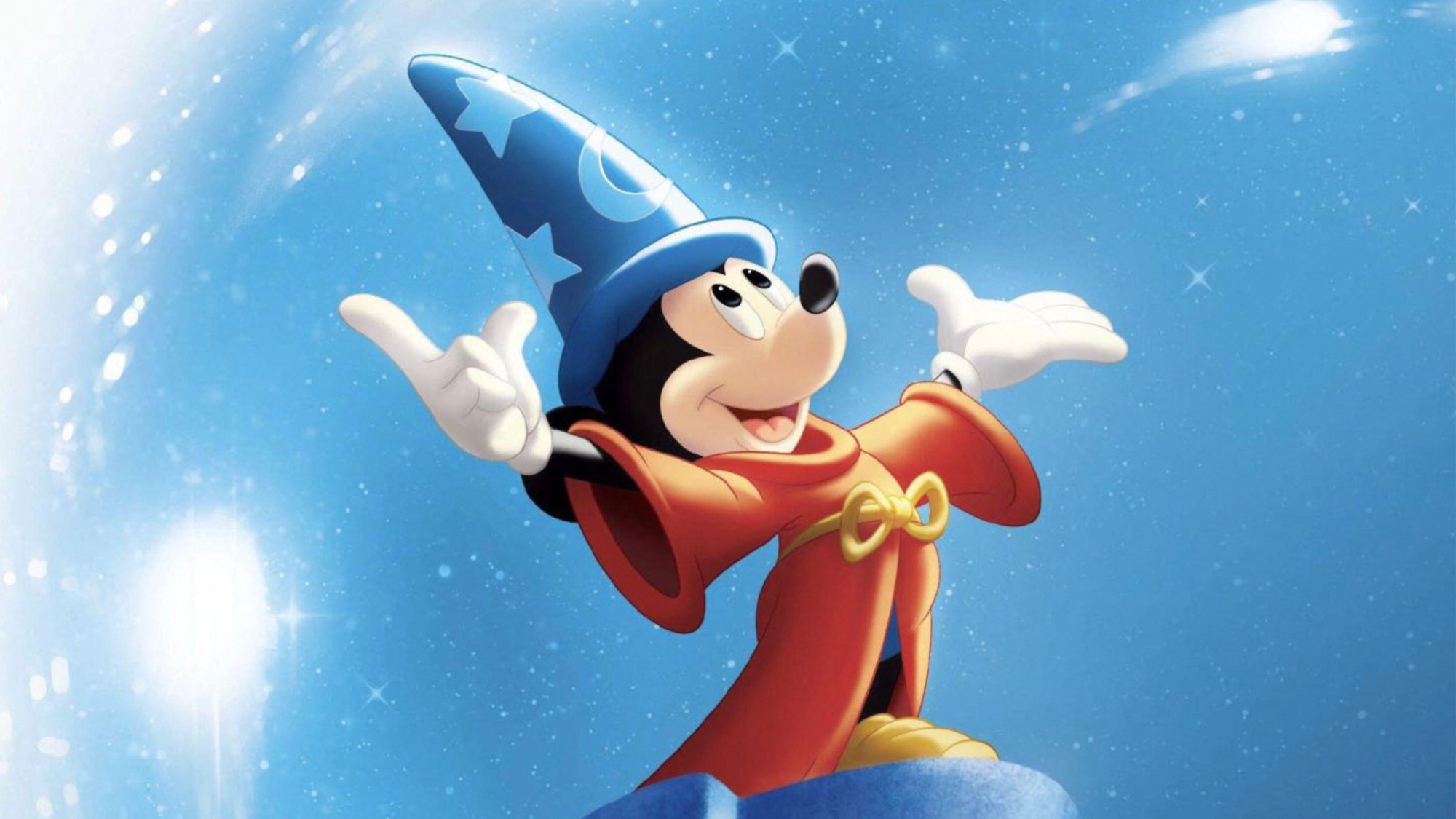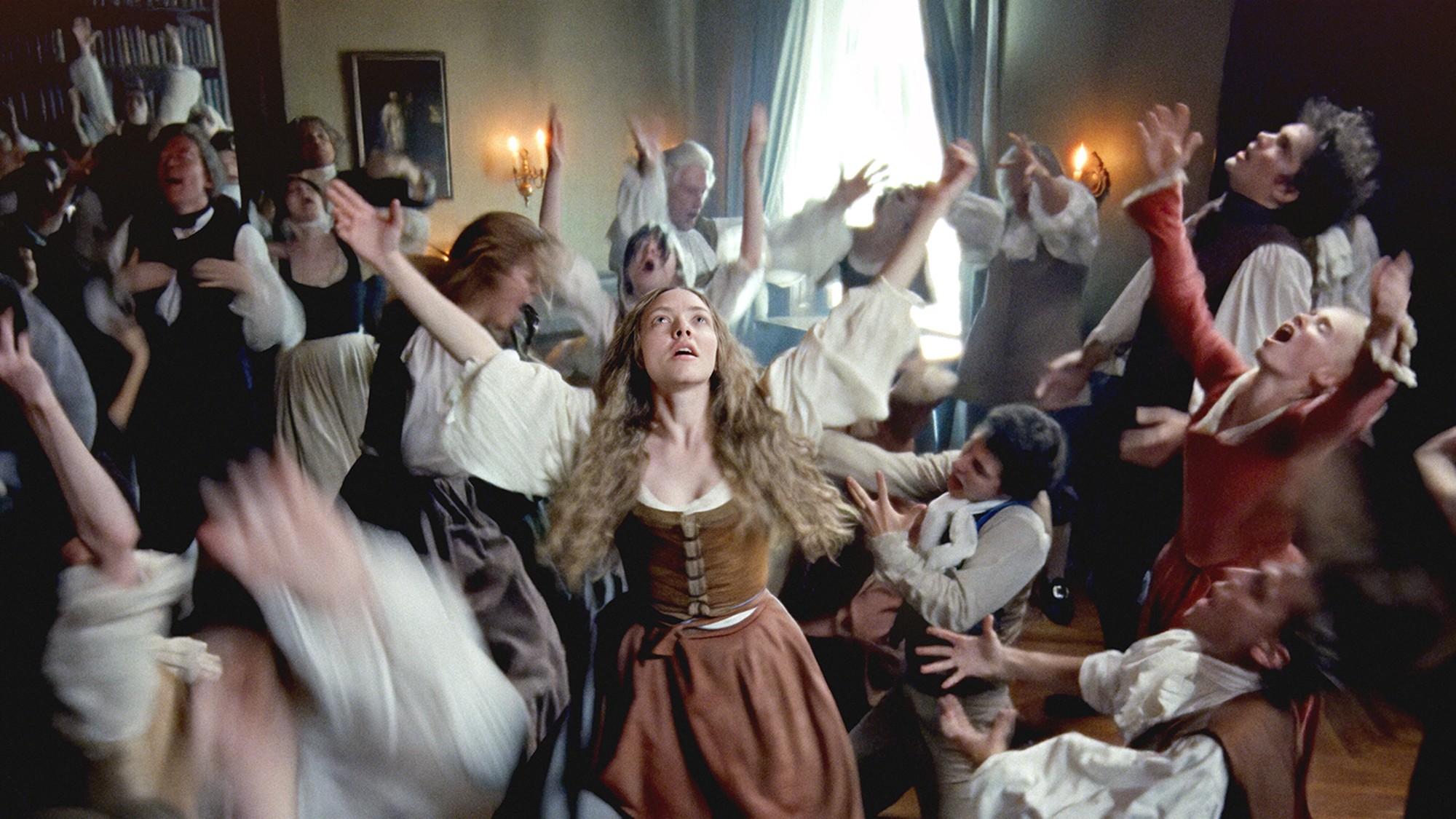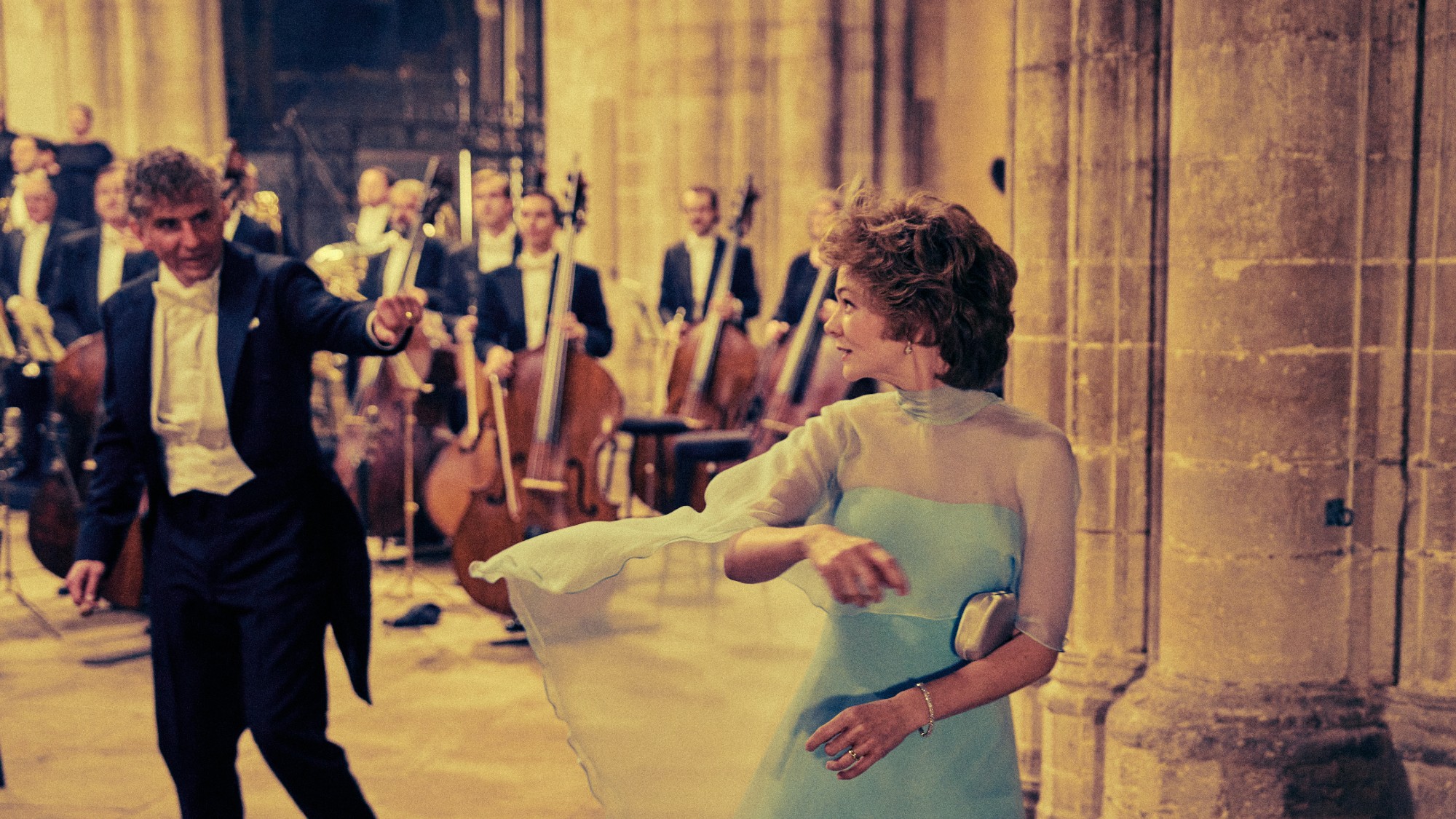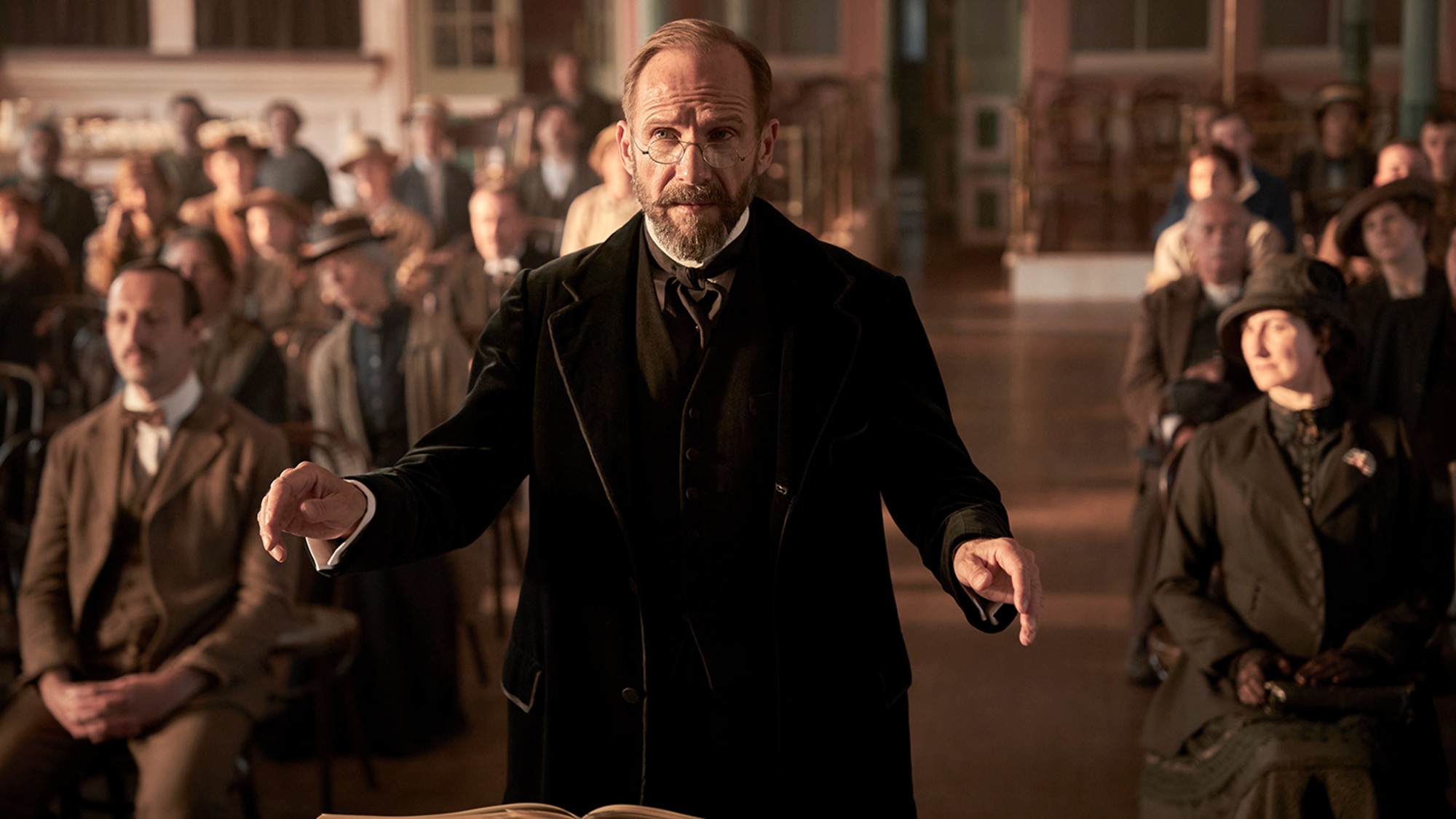The too-muchness of Nightmare Alley
Guillermo del Toro's latest is excessive. That's not always a bad thing.


A free daily email with the biggest news stories of the day – and the best features from TheWeek.com
You are now subscribed
Your newsletter sign-up was successful
When it comes to the geek gods of modern filmmaking, you'd be hard-pressed to name anyone more infectiously fanatical about their source material than Peter Jackson or Guillermo del Toro.
Naturally, the pair have had their share of overlap over the years: Del Toro was even once slated to make a Jackson-produced adaptation of The Hobbit, only to exit and endorse Jackson to direct it in his stead. "Me, like any other geek, I really want to see Peter do the movie," del Toro told MTV, only to later get his wish. Del Toro, meanwhile, went on to win an Oscar for directing The Shape of Water instead.
Now del Toro has unexpectedly — perhaps even accidentally — returned to Jackson territory with his new movie, Nightmare Alley, out Friday. Though Nightmare Alley is less Jackson's Hobbit and more Jackson's three-hour King Kong from 2005: As with Kong, there is a previous, much-loved version of Nightmare Alley out there (albeit a classic less well-known than the giant-ape picture). Also like Jackson's Kong, del Toro's Nightmare Alley is a weirdly specific act of fandom, one that has the power to expand a previous work while, if not exactly ruining the old one for new viewers, at least unintentionally making it appear slimmer and more modest than it really is.
The Week
Escape your echo chamber. Get the facts behind the news, plus analysis from multiple perspectives.

Sign up for The Week's Free Newsletters
From our morning news briefing to a weekly Good News Newsletter, get the best of The Week delivered directly to your inbox.
From our morning news briefing to a weekly Good News Newsletter, get the best of The Week delivered directly to your inbox.
Released in 1947, the original Nightmare Alley (streaming on the Criterion Channel) is a noir directed by Edmund Goulding and starring Tyrone Power as an ambitious carny who embroils himself in an unethical scheme to trick a rich old man into believing he can contact the dead. Del Toro's Nightmare Alley is set in the same period as the original film, but — again borrowing a page from Jackson's King Kong — it is produced with a contemporary splashiness and expanded running time. This strategy also brings to mind recent redos like Steven Spielberg's West Side Story or the series of Disney live-action remakes, which all seem aimed at welcoming modern audiences into celebrated older works they might otherwise dismiss as too old-fashioned.
To be fair, del Toro's Nightmare Alley isn't technically a remake; the credited source material is the 1946 William Lindsay Gresham novel that also inspired the 1947 film. But at the very least, both movies are close enough to the book that they share most of the same plot points and even bits of the same dialogue. The 2021 version will be received as a remake, even if that wasn't del Toro's primary goal.
On those terms, del Toro's Nightmare is both faithful to the spirit of the earlier film and enamored of its own 21st-century muchness. More than the earlier film, it luxuriates in its atmosphere, especially in its early carnival-set sections. Both movies travel from the carnival grounds to a swankier urban environment, where drifter-turned-carny-turned-performer Stan Carlisle (Bradley Cooper in the new film) and his partner Molly (Rooney Mara) perform their mentalism act. The film then takes a turn into noir when a femme fatale (Cate Blanchett) convinces Stan to use his staged abilities to swindle a desperate old man (Richard Jenkins). But while the 1947 Nightmare is expansive for a noir of the era — 110 minutes, when plenty of similar movies in the genre clocked closer to 85 — the 2021 edition goes on for a full half-hour longer than that.
The actual plots, however, aren't wildly different despite their diverging runtimes. Del Toro's version mostly just adds backstory and a lengthier set-up, spending more time with the other carnies and, later, adding some sex and violence that wasn't permitted in the '47 edition — along with a more bracing (and, frankly, superior) ending. At times, this Nightmare Alley feels more detailed, with its starry ensemble and disturbing peeks into the psychology of its chilly, seemingly amoral lead character. But watching it alongside the older film makes it clear just how excessive the new one is, too. The 1947 version tells the same story in far less time, with less fuss — and less gore, if you mind that sort of thing.
A free daily email with the biggest news stories of the day – and the best features from TheWeek.com
Yet the excesses of Nightmare Alley also make it worth watching. Despite the prestige-picture release, it has plenty in common with del Toro's more genre-oriented movies like Crimson Peak. Though it never leaps straight into the fantastical, it's about as close to a creature feature as you can get with an all-human, creature-free cast. Those who watch the 2021 version first may find the 1947 version truncated despite its economy, just as those who know the earlier film may find the later edition a tedious reiteration, despite its obvious present-day production value.
Still, atmosphere aside, it's tricky to get a handle on why del Toro and his co-writer Kim Morgan wanted to retell this particular story. There's certainly resonance in a tale of an unrepentant charlatan undone by greed, but that's present in the old movie, too, and unlike the recent West Side Story, this screenplay doesn't pull at many contemporary threads; it's too enamored with recreating a heightened horror-noir dream state. Perhaps this is a more obscure version of something like Ghostbusters: Afterlife or this week's Spider-Man: No Way Home, which pay explicit (and sometimes needlessly��excessive) homage to their blockbuster ancestors.
If that's the case, at least Nightmare Alley has a cultural memory that extends back beyond 1982 or so. It may feel caricatured and self-conscious compared to the 1947 film, but del Toro's clear love of his source material also makes you excuse its unnecessary grandiosity.
And at its best, that means Nightmare Alley is exactly as it should be: like watching an unsung classic through someone else's besotted eyes.
Jesse Hassenger's film and culture criticism has appeared in The Onion's A.V. Club, Brooklyn Magazine, and Men's Journal online, among others. He lives in Brooklyn, where he also writes fiction, edits textbooks, and helps run SportsAlcohol.com, a pop culture blog and podcast.
-
 Switzerland could vote to cap its population
Switzerland could vote to cap its populationUnder the Radar Swiss People’s Party proposes referendum on radical anti-immigration measure to limit residents to 10 million
-
 Political cartoons for February 15
Political cartoons for February 15Cartoons Sunday's political cartoons include political ventriloquism, Europe in the middle, and more
-
 The broken water companies failing England and Wales
The broken water companies failing England and WalesExplainer With rising bills, deteriorating river health and a lack of investment, regulators face an uphill battle to stabilise the industry
-
 The 8 best superhero movies of all time
The 8 best superhero movies of all timethe week recommends A genre that now dominates studio filmmaking once struggled to get anyone to take it seriously
-
 Heated Rivalry, Bridgerton and why sex still sells on TV
Heated Rivalry, Bridgerton and why sex still sells on TVTalking Point Gen Z – often stereotyped as prudish and puritanical – are attracted to authenticity
-
 Film reviews: ‘Send Help’ and ‘Private Life’
Film reviews: ‘Send Help’ and ‘Private Life’Feature An office doormat is stranded alone with her awful boss and a frazzled therapist turns amateur murder investigator
-
 February’s new movies include rehab facilities, 1990s Iraq and maybe an apocalypse
February’s new movies include rehab facilities, 1990s Iraq and maybe an apocalypsethe week recommends Time travelers, multiverse hoppers and an Iraqi parable highlight this month’s offerings during the depths of winter
-
 The 8 best animated family movies of all time
The 8 best animated family movies of all timethe week recomends The best kids’ movies can make anything from the apocalypse to alien invasions seem like good, wholesome fun
-
 Film reviews: ‘The Testament of Ann Lee,’ ’28 Years Later: The Bone Temple,’ and ‘Young Mothers’
Film reviews: ‘The Testament of Ann Lee,’ ’28 Years Later: The Bone Temple,’ and ‘Young Mothers’Feature A full-immersion portrait of the Shakers’ founder, a zombie virus brings out the best and worst in the human survivors, and pregnancy tests the resolve of four Belgian teenagers
-
 The 8 best biopic movies of the 21st century (so far)
The 8 best biopic movies of the 21st century (so far)the week recommends Not all true stories are feel good tales, but the best biopics offer insight into broader social and political trends
-
 Film review: ‘The Choral’
Film review: ‘The Choral’Feature Ralph Fiennes plays a demanding aesthete
